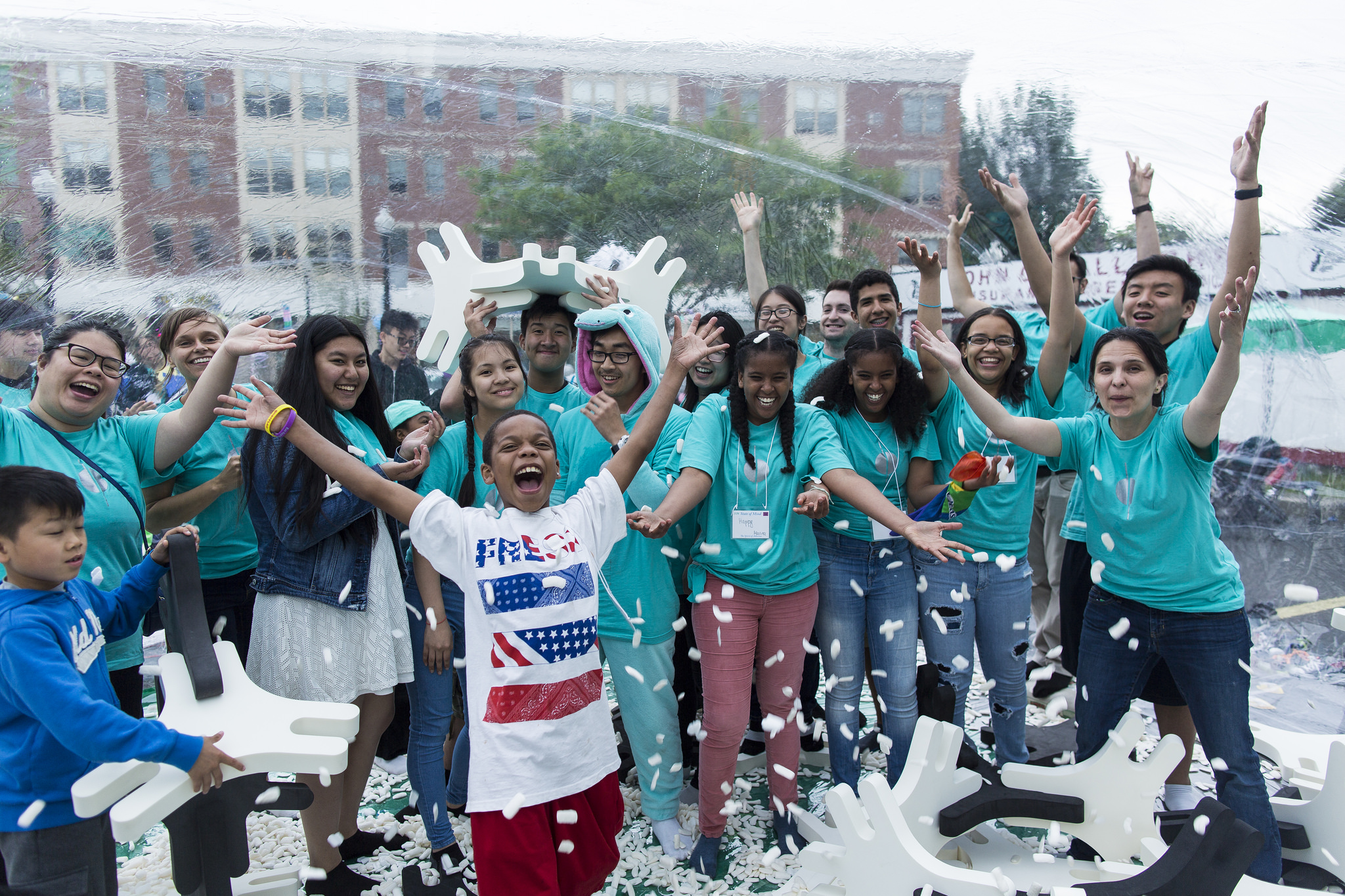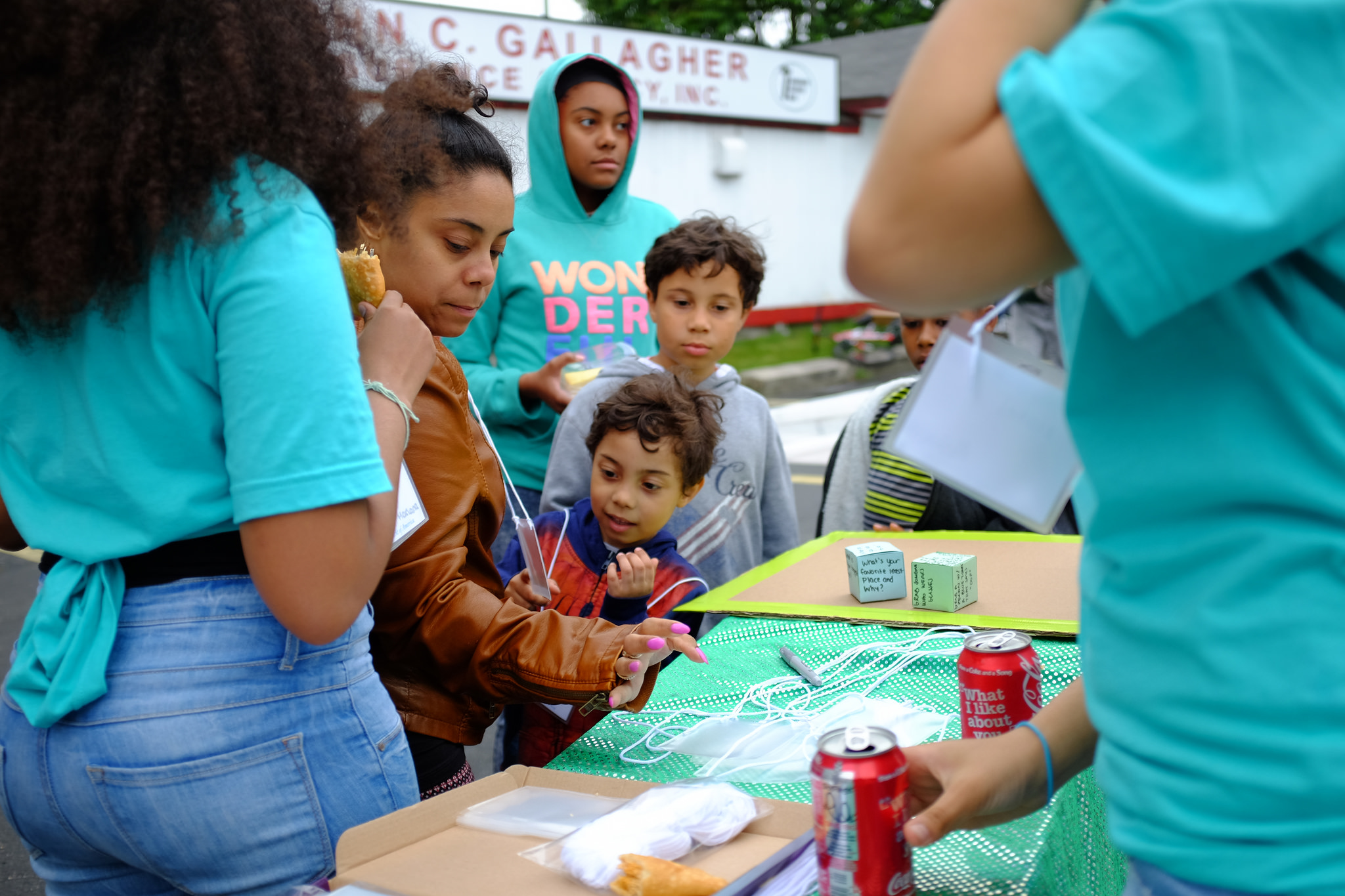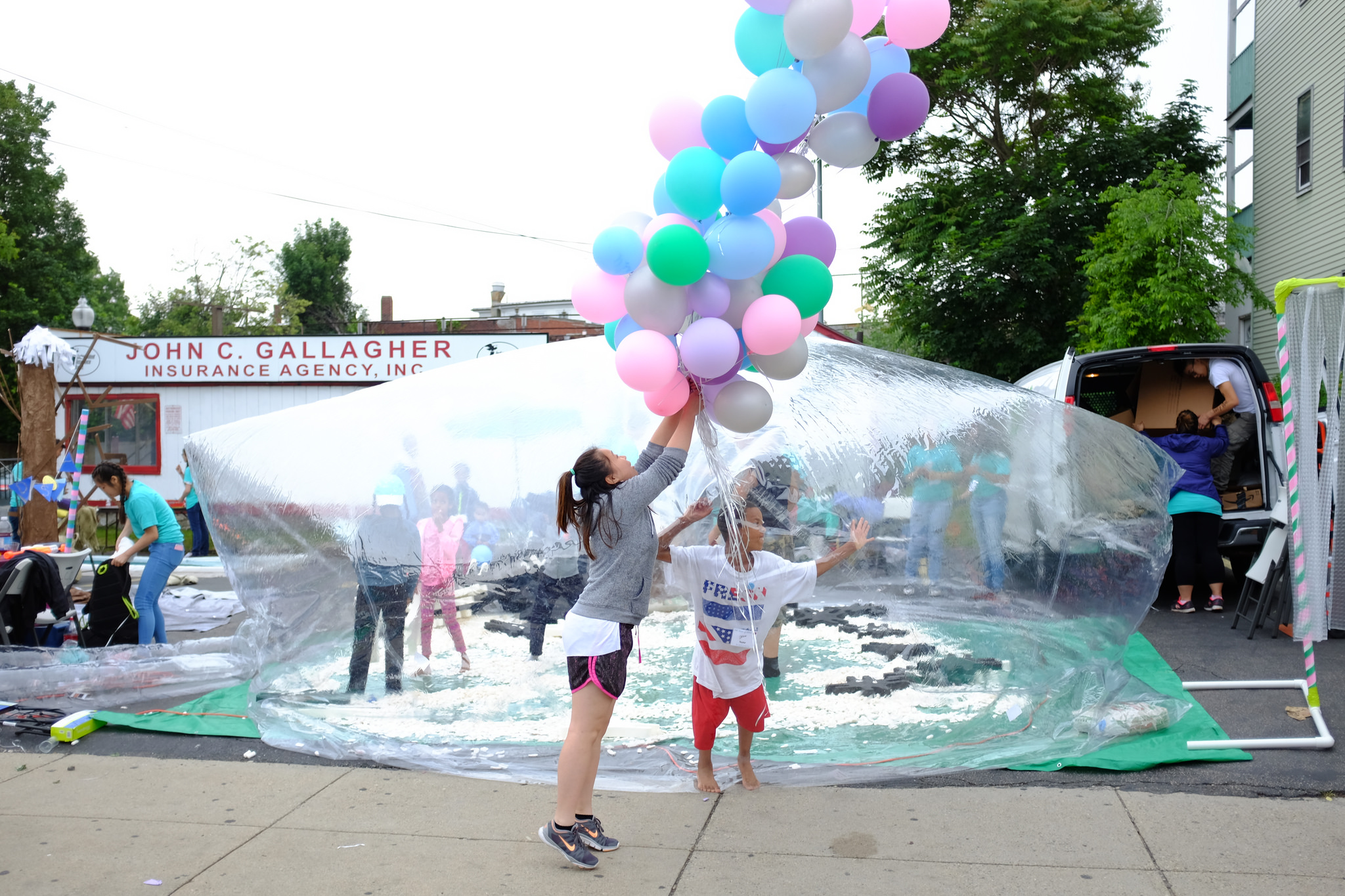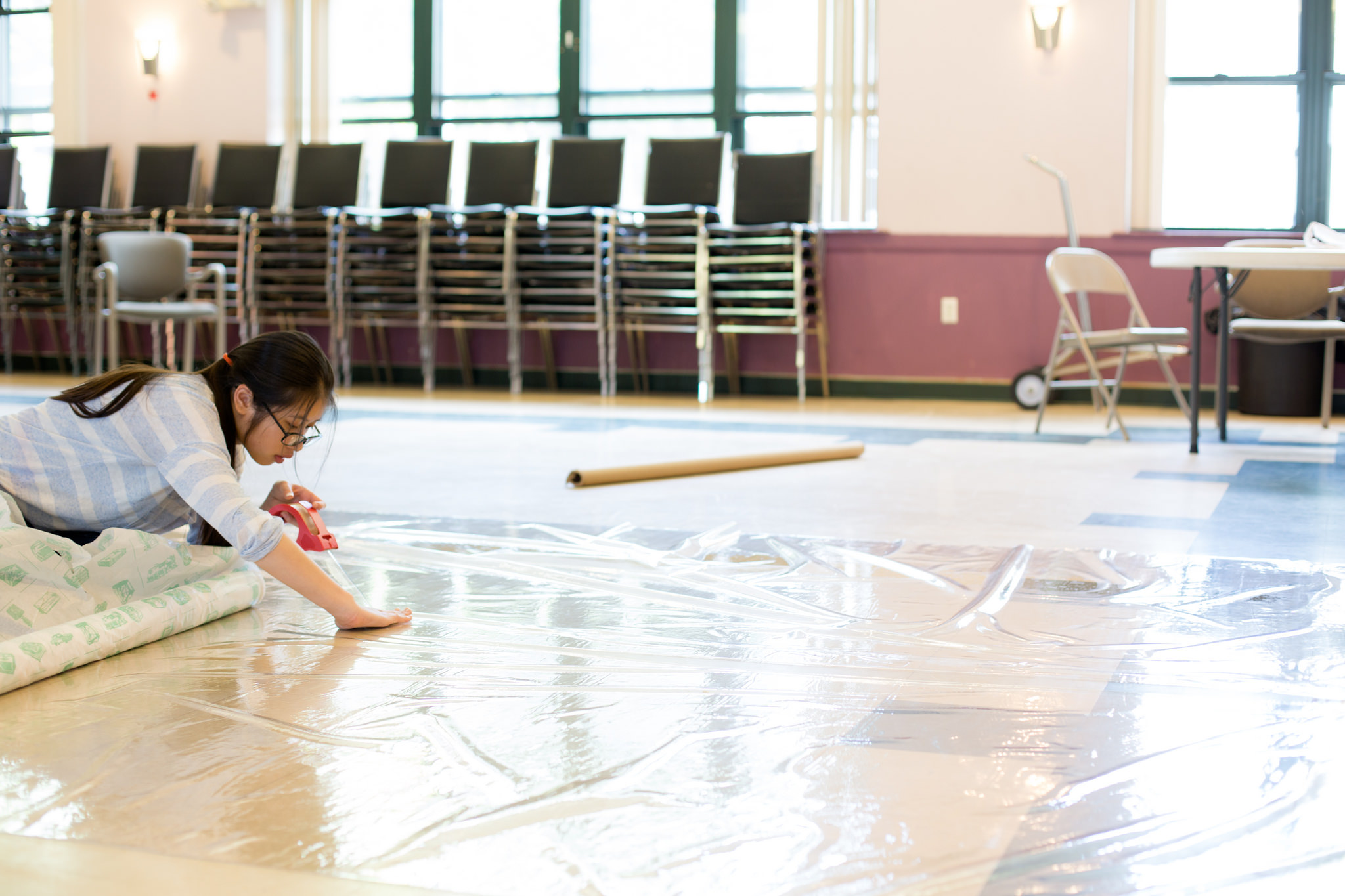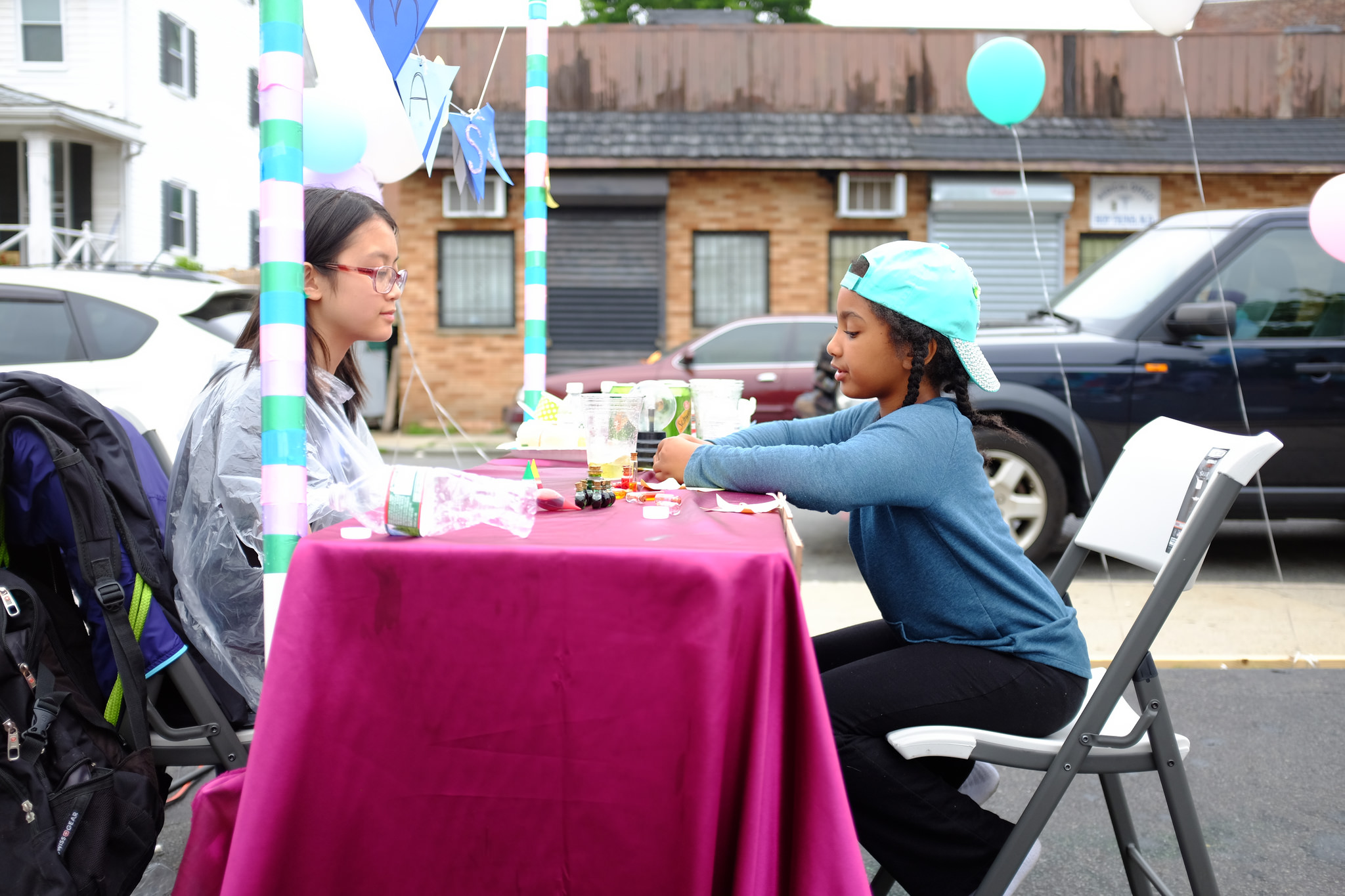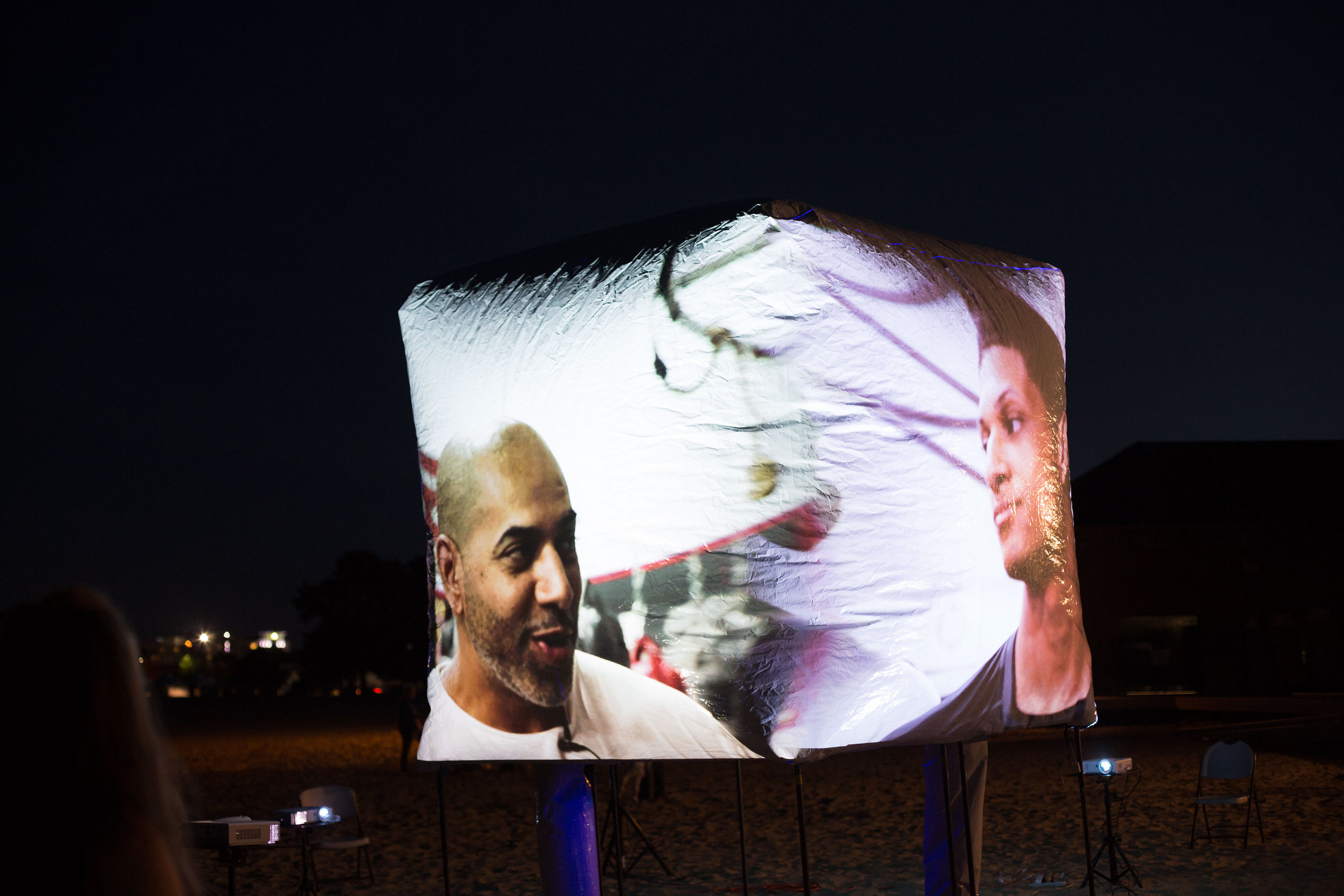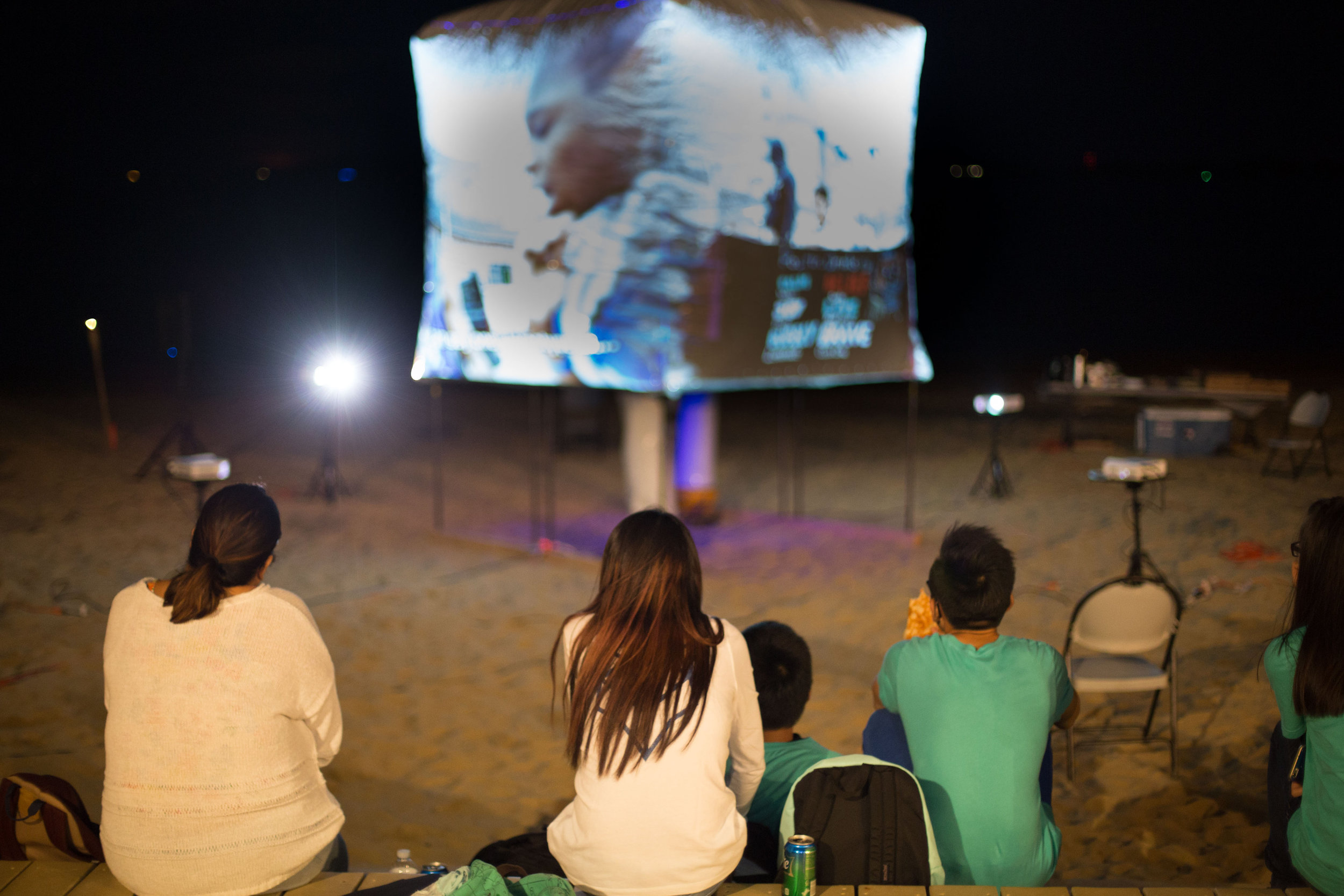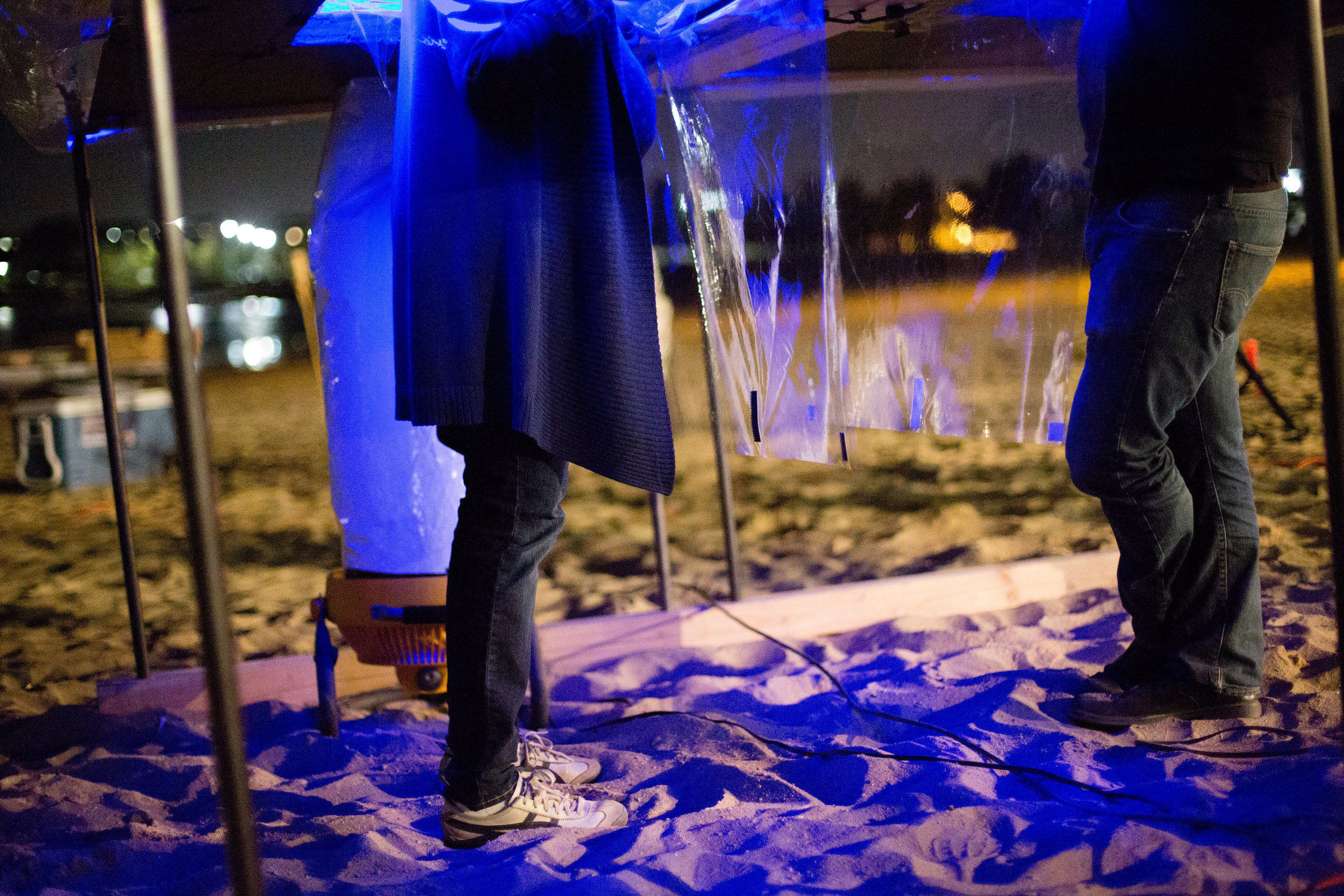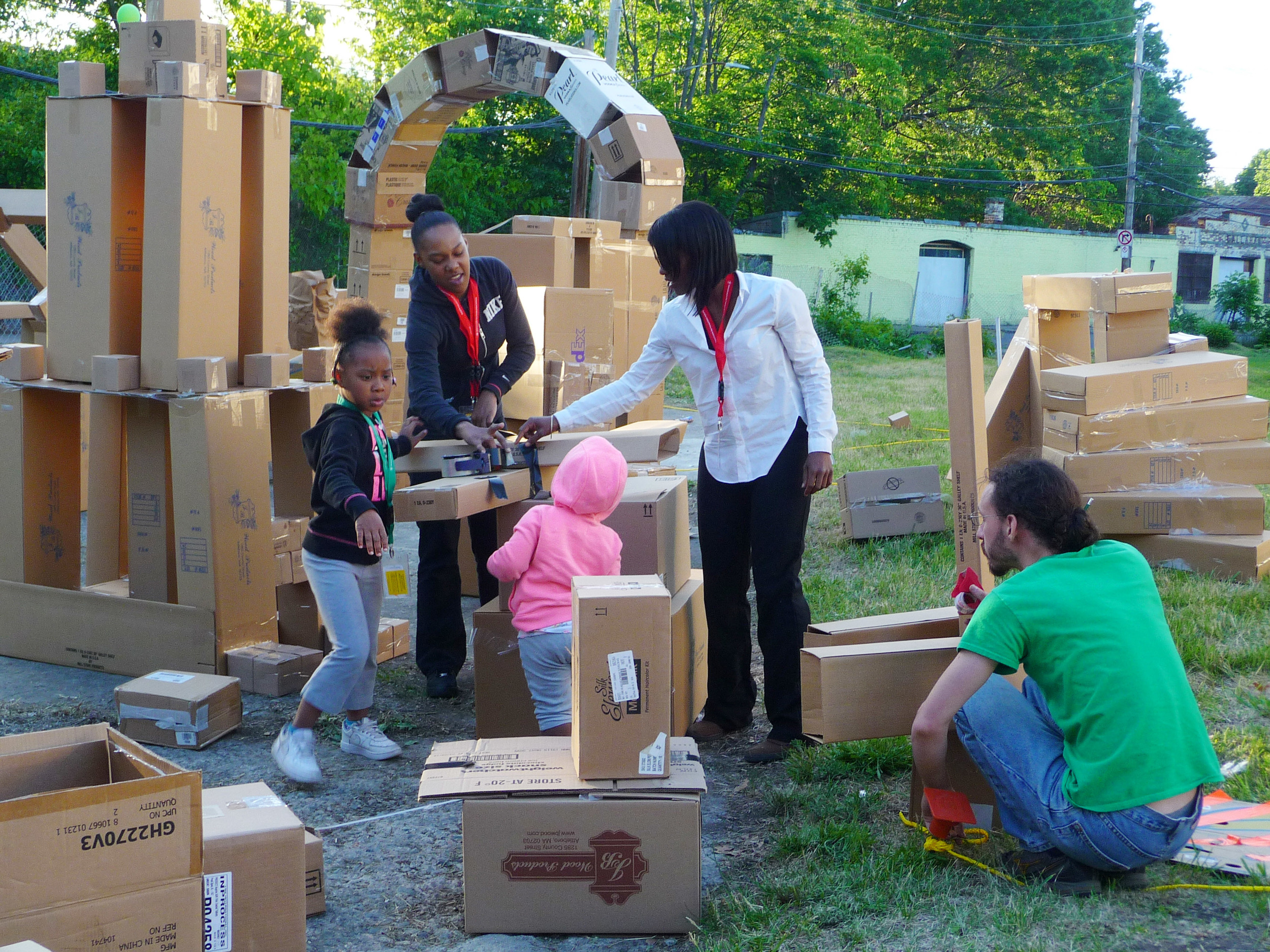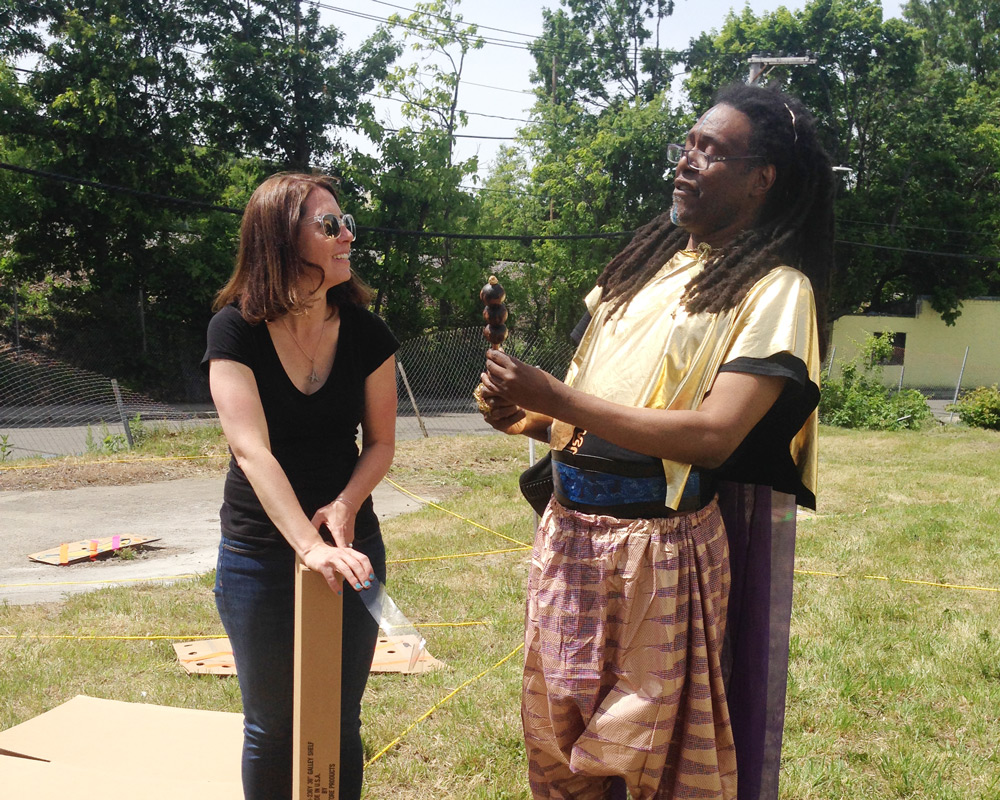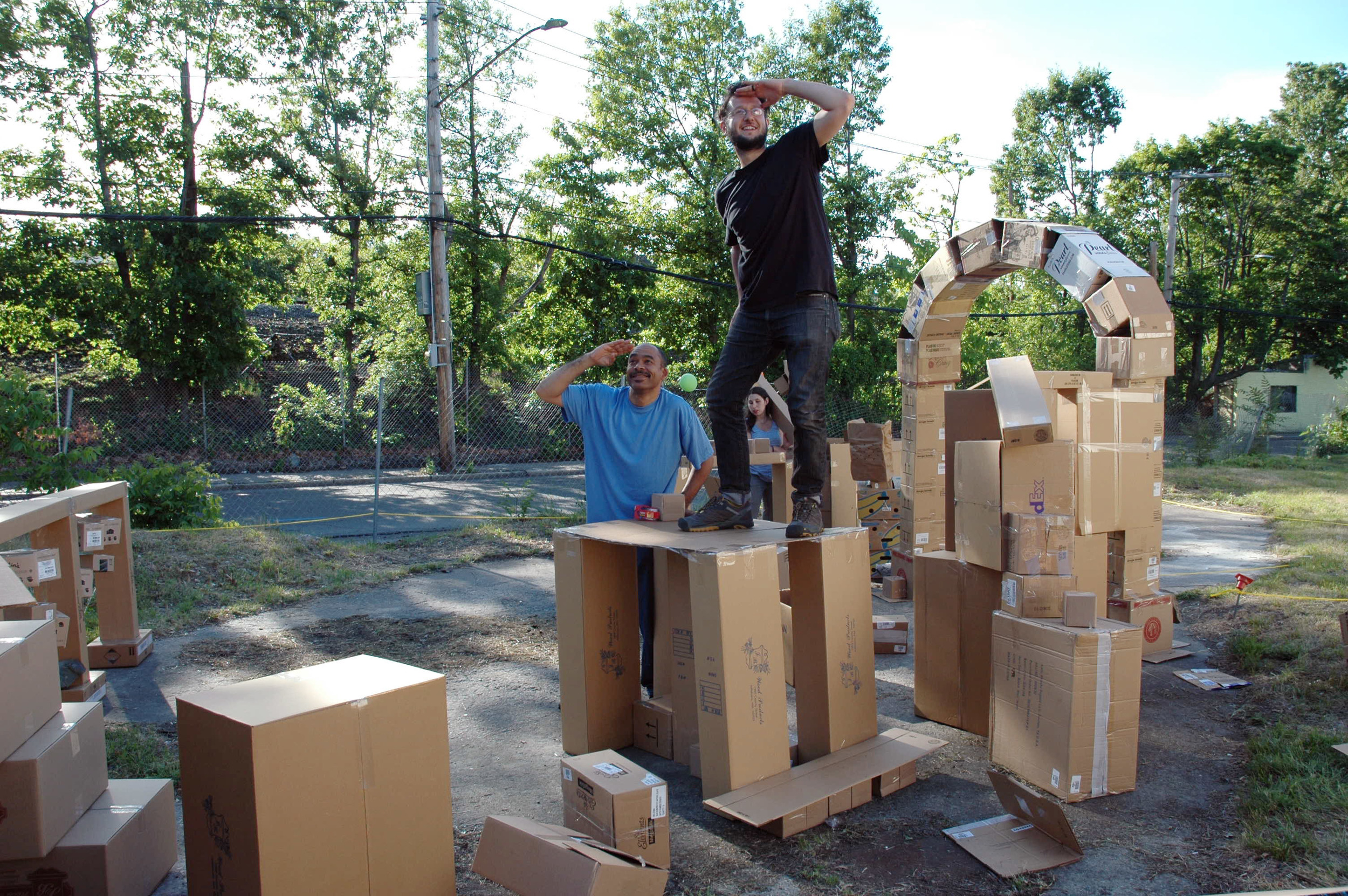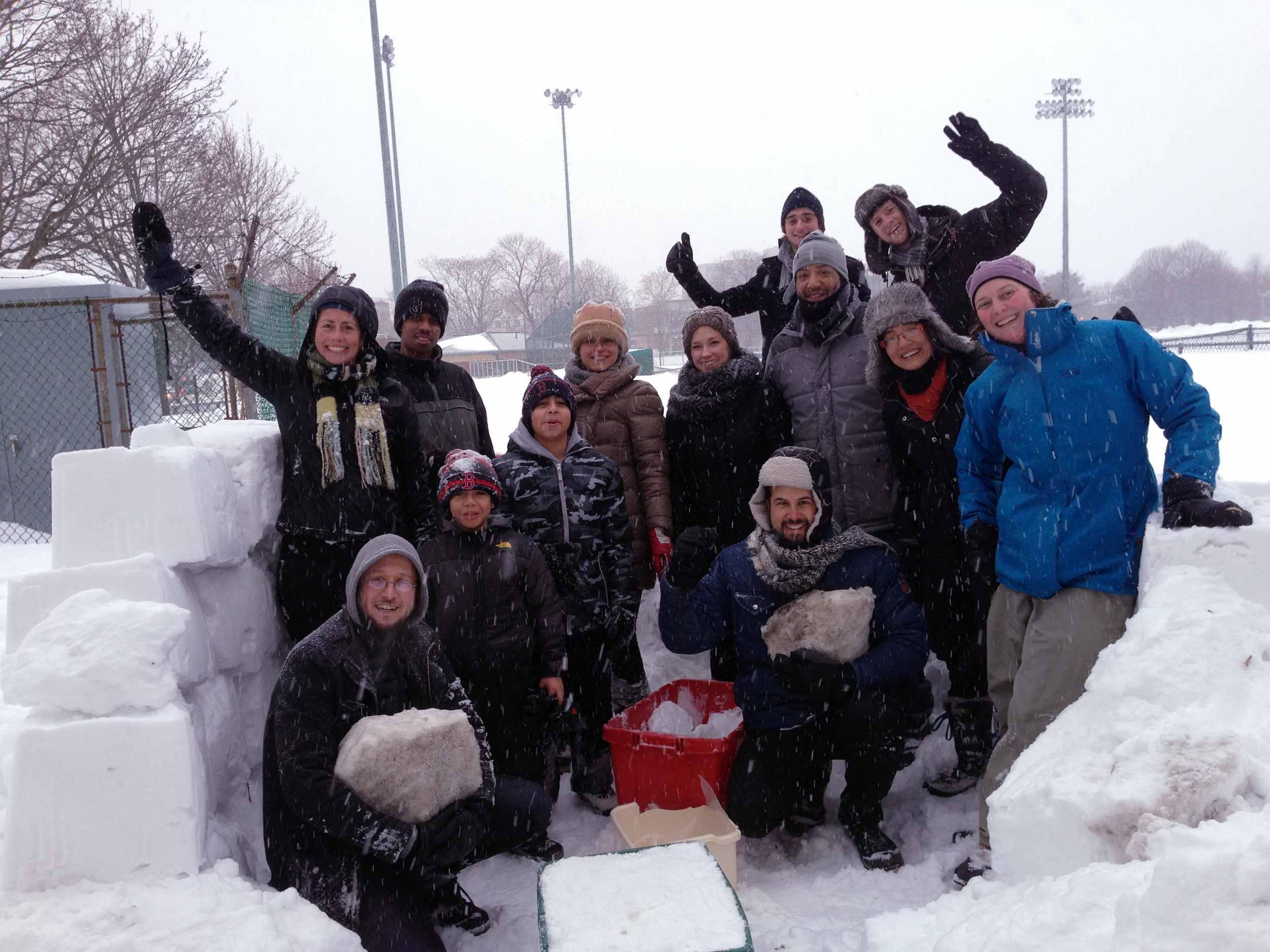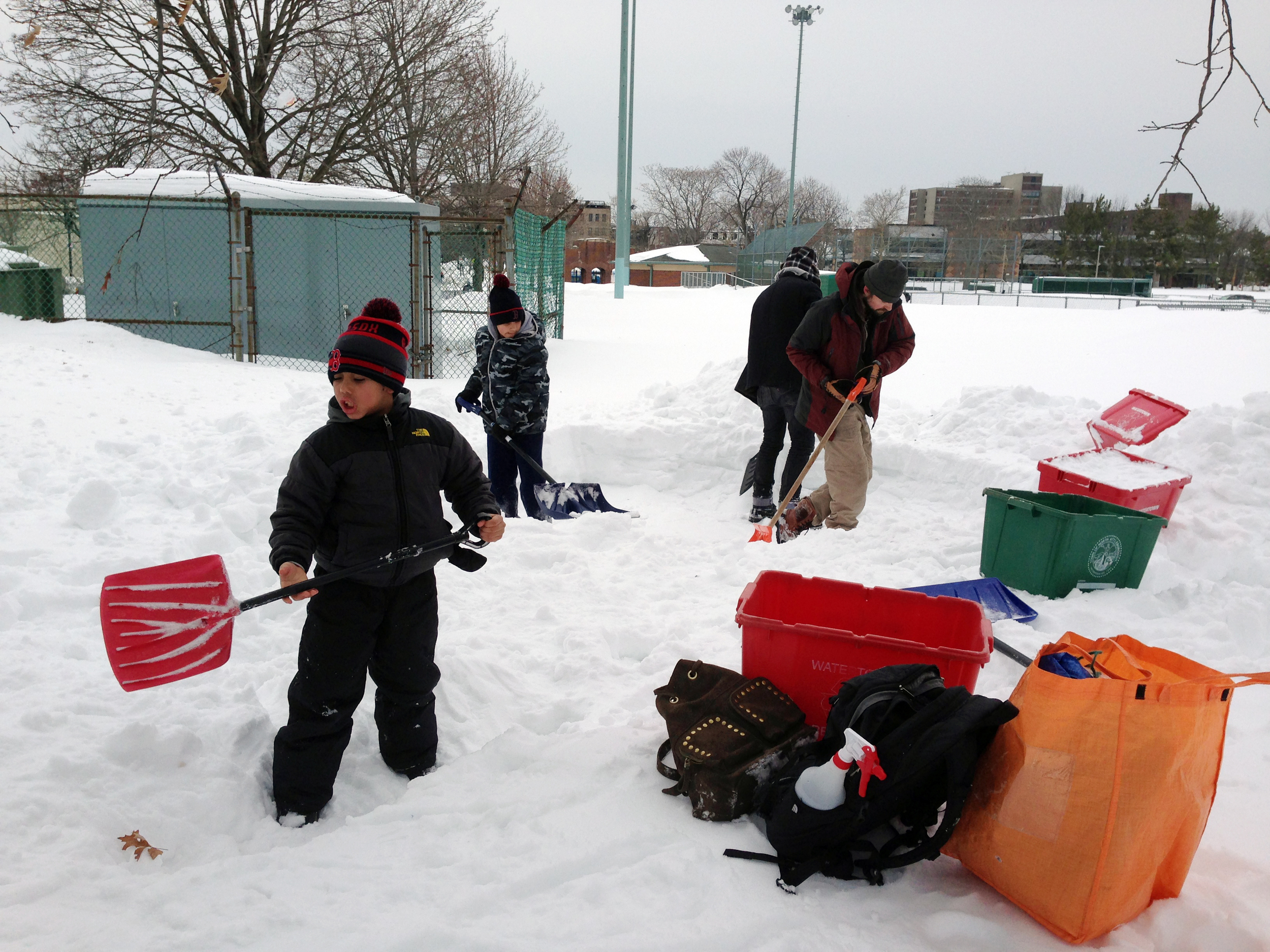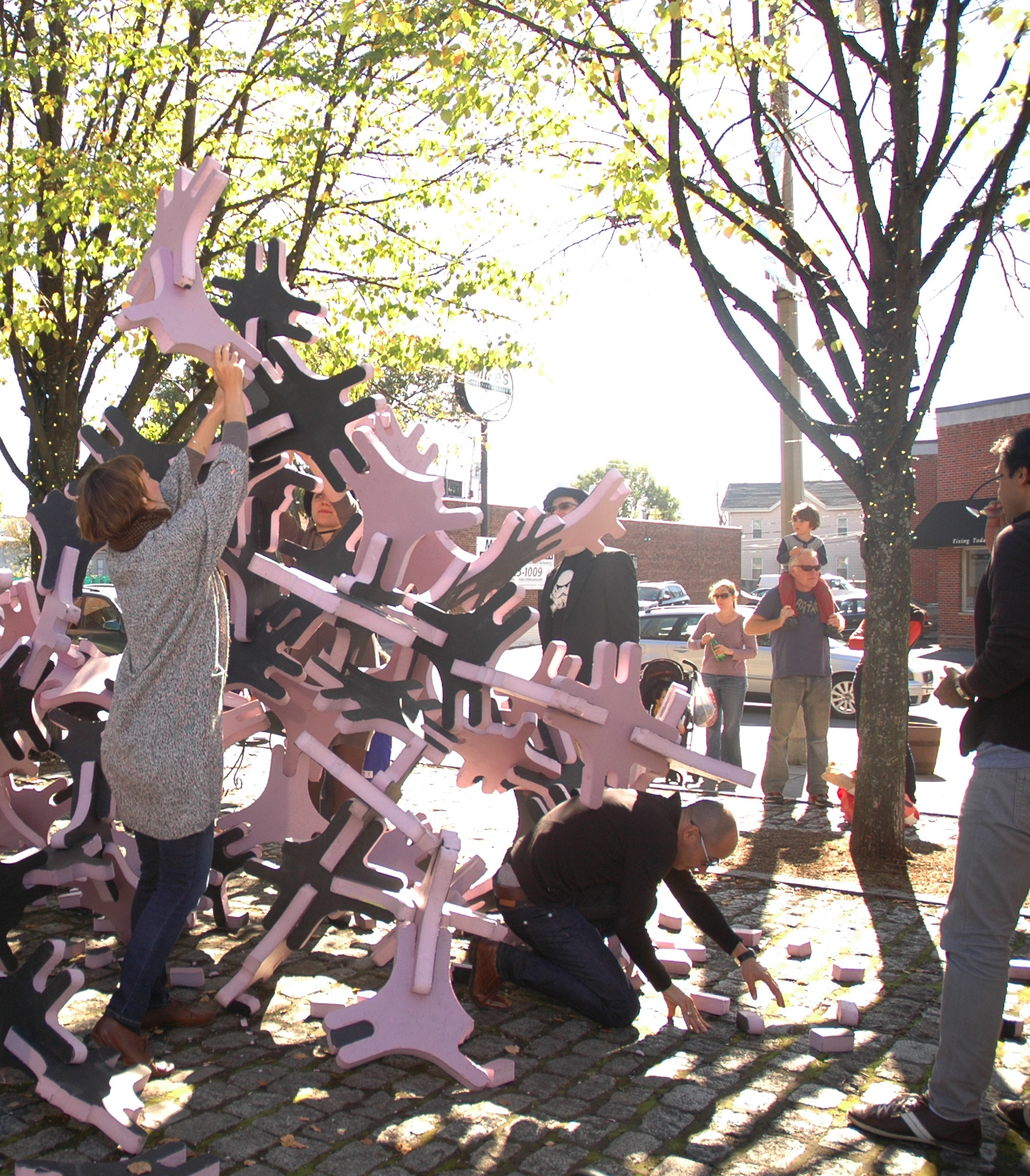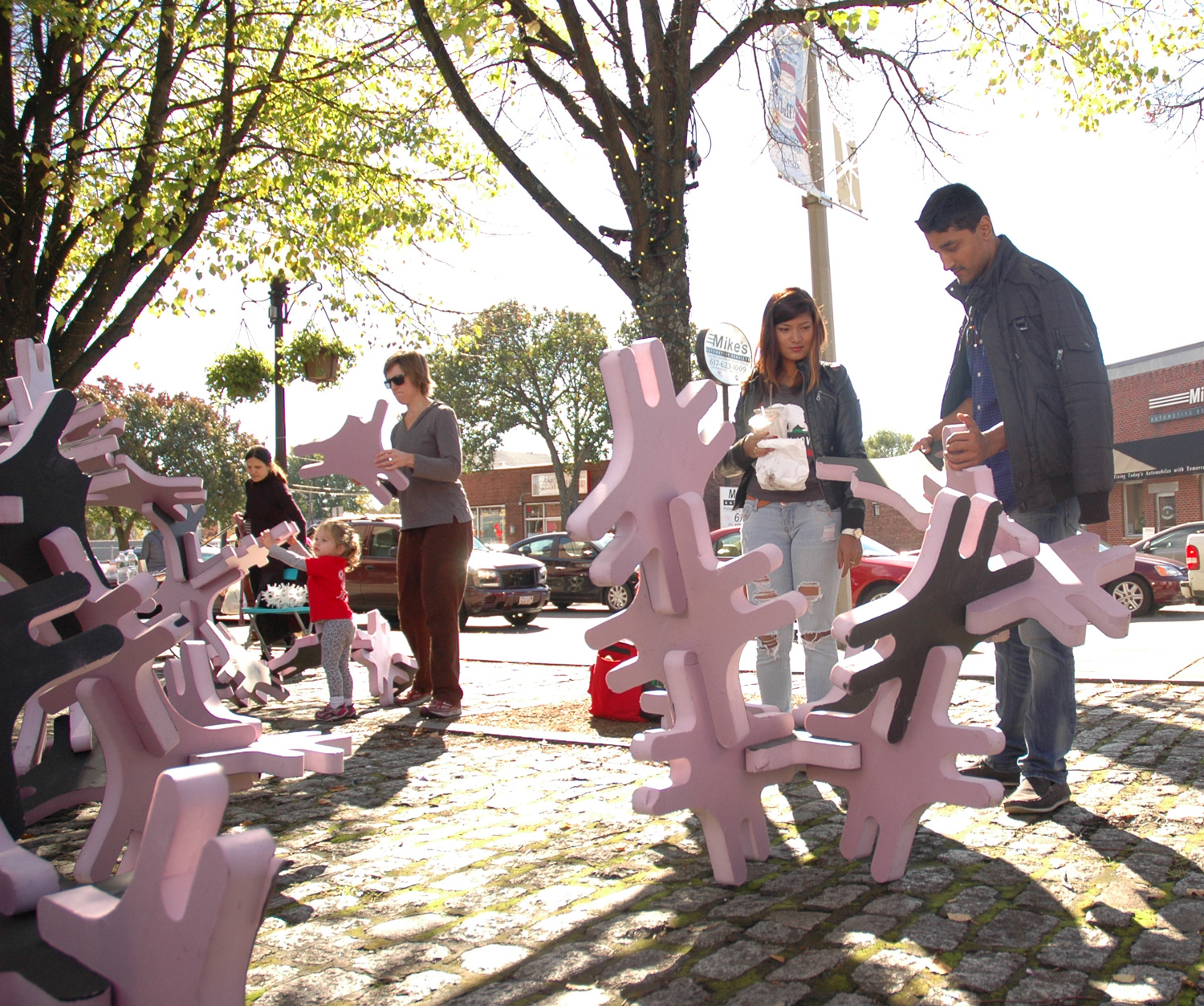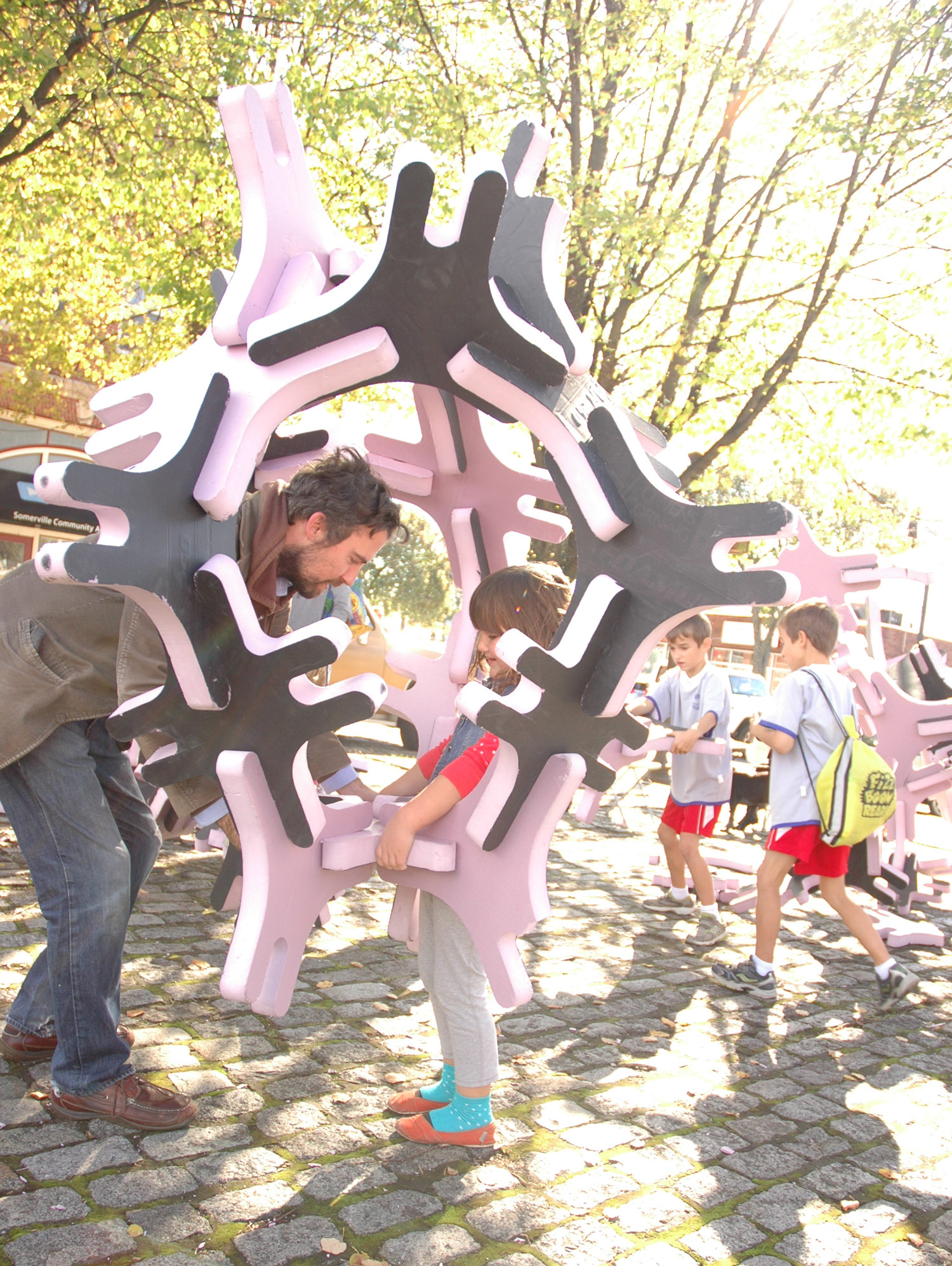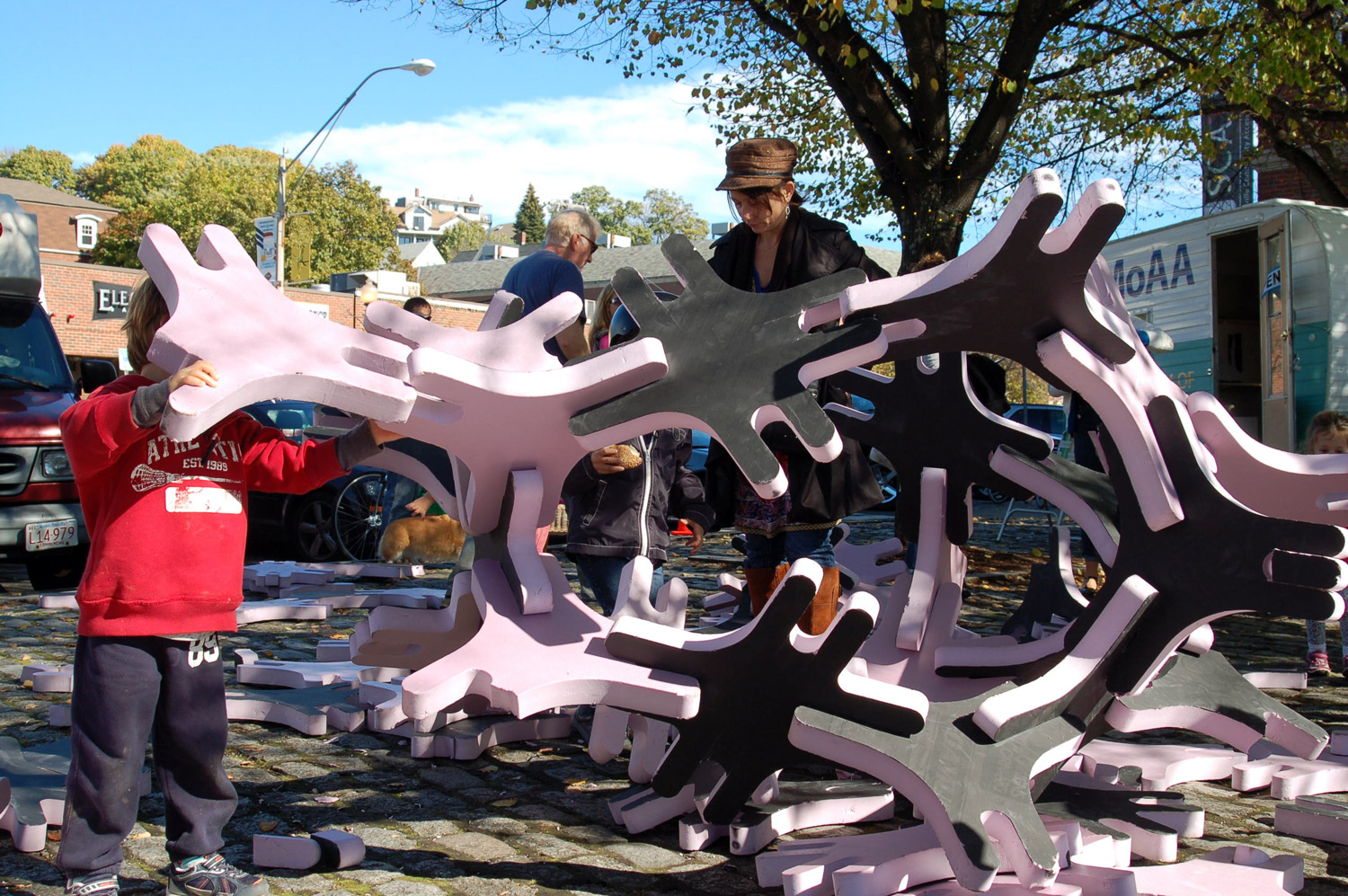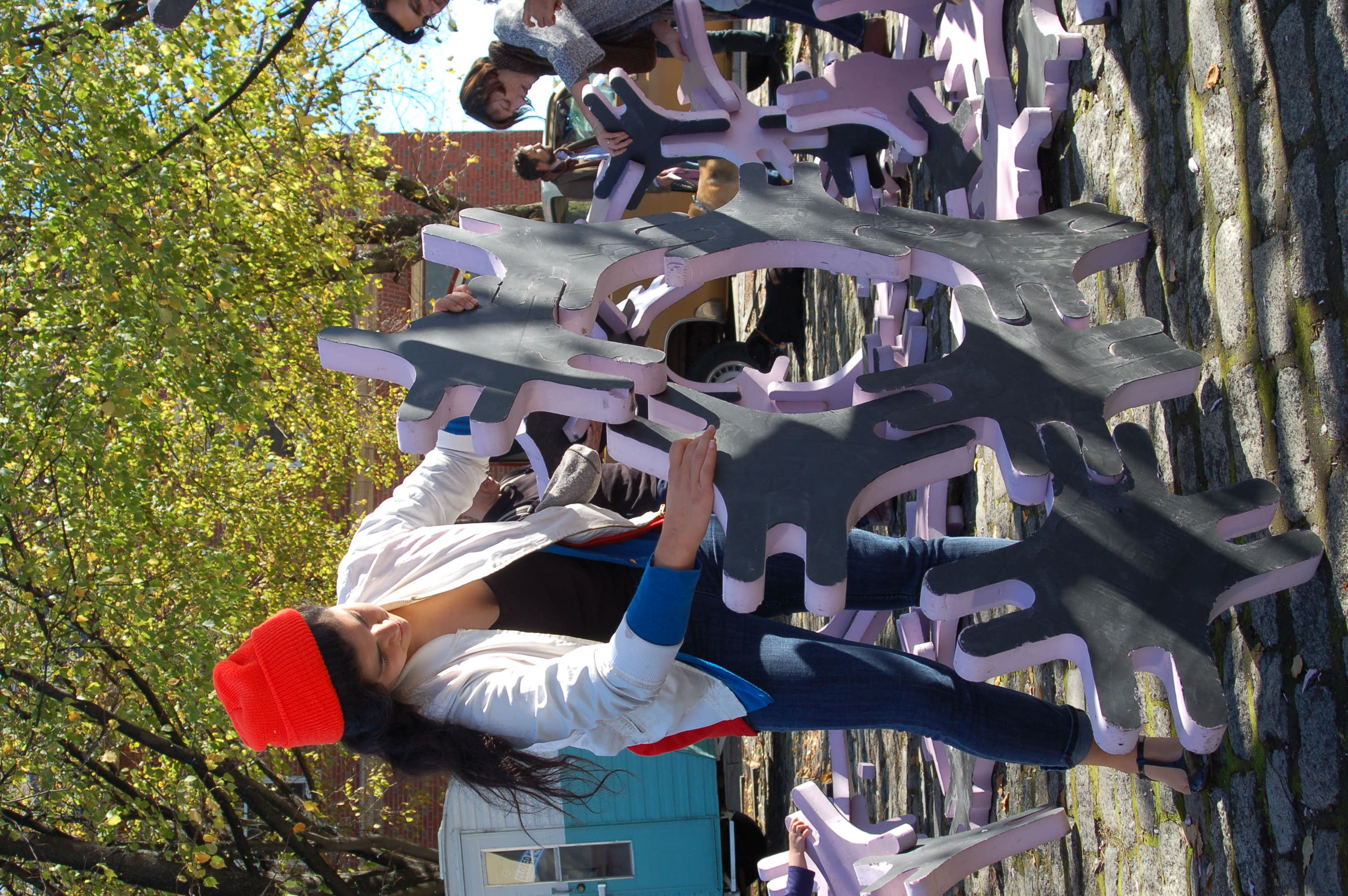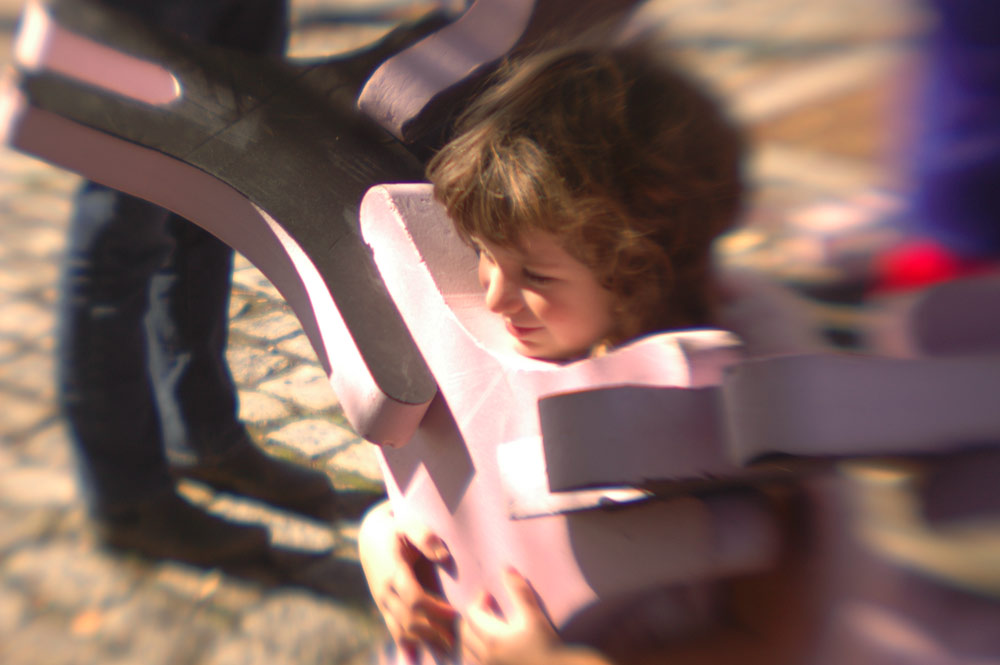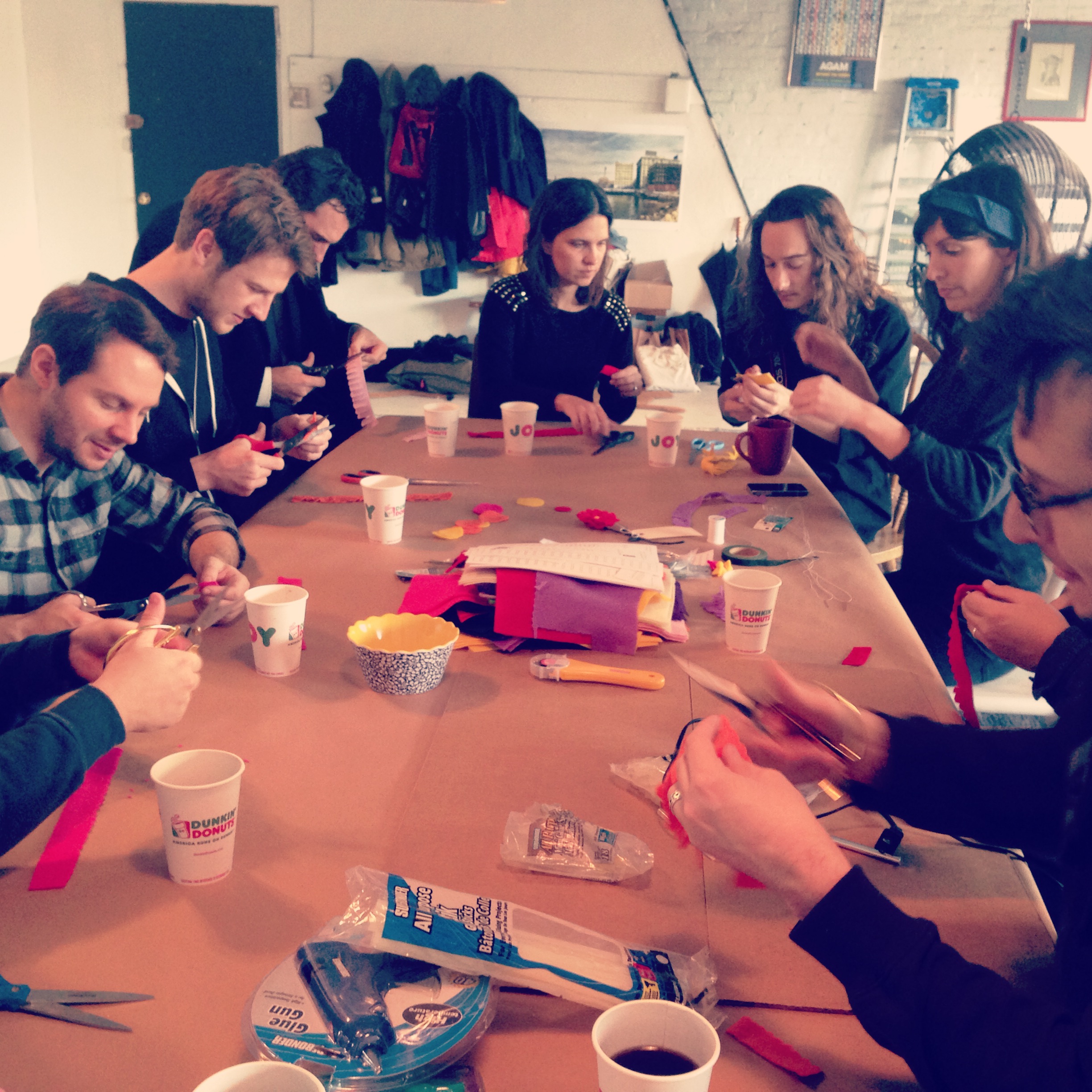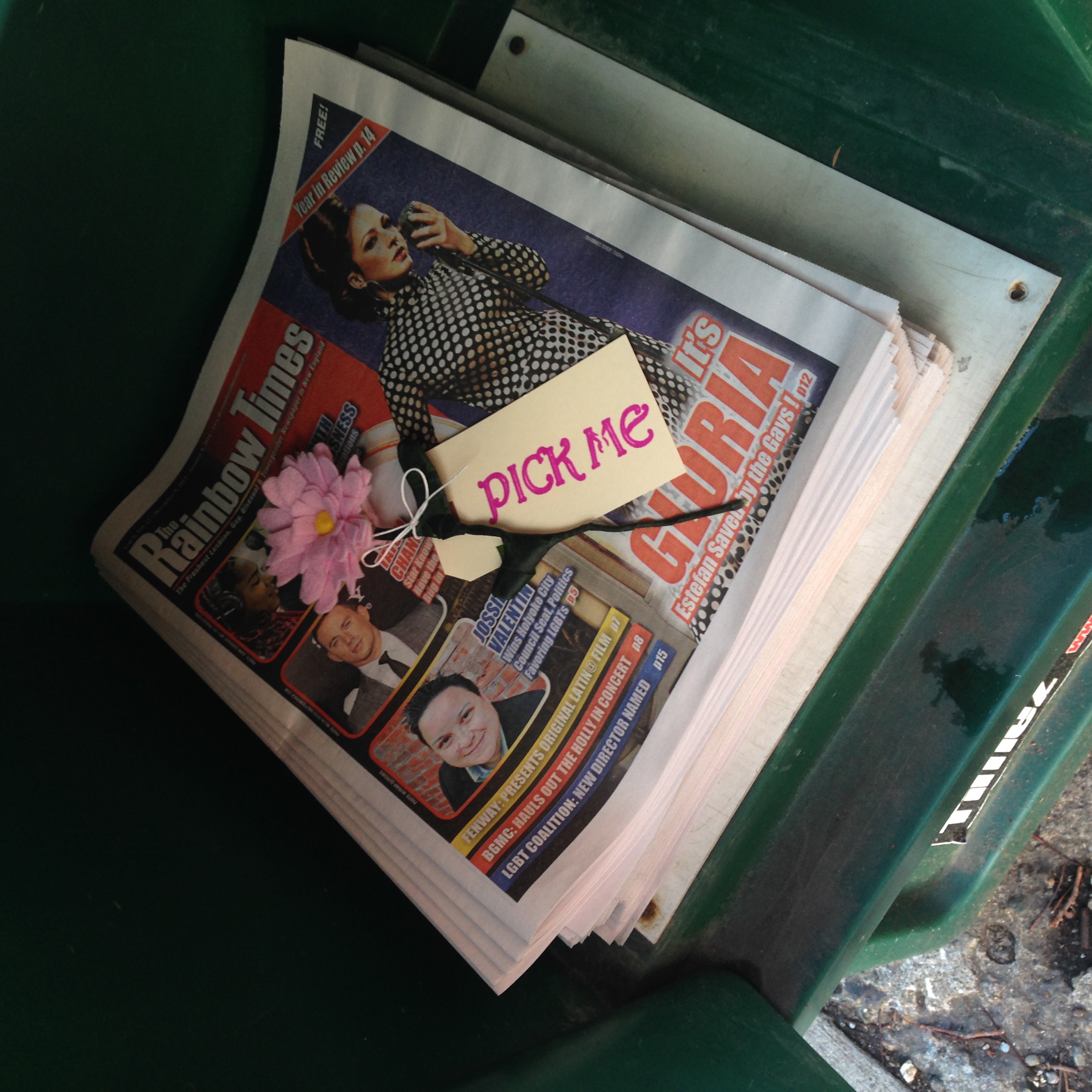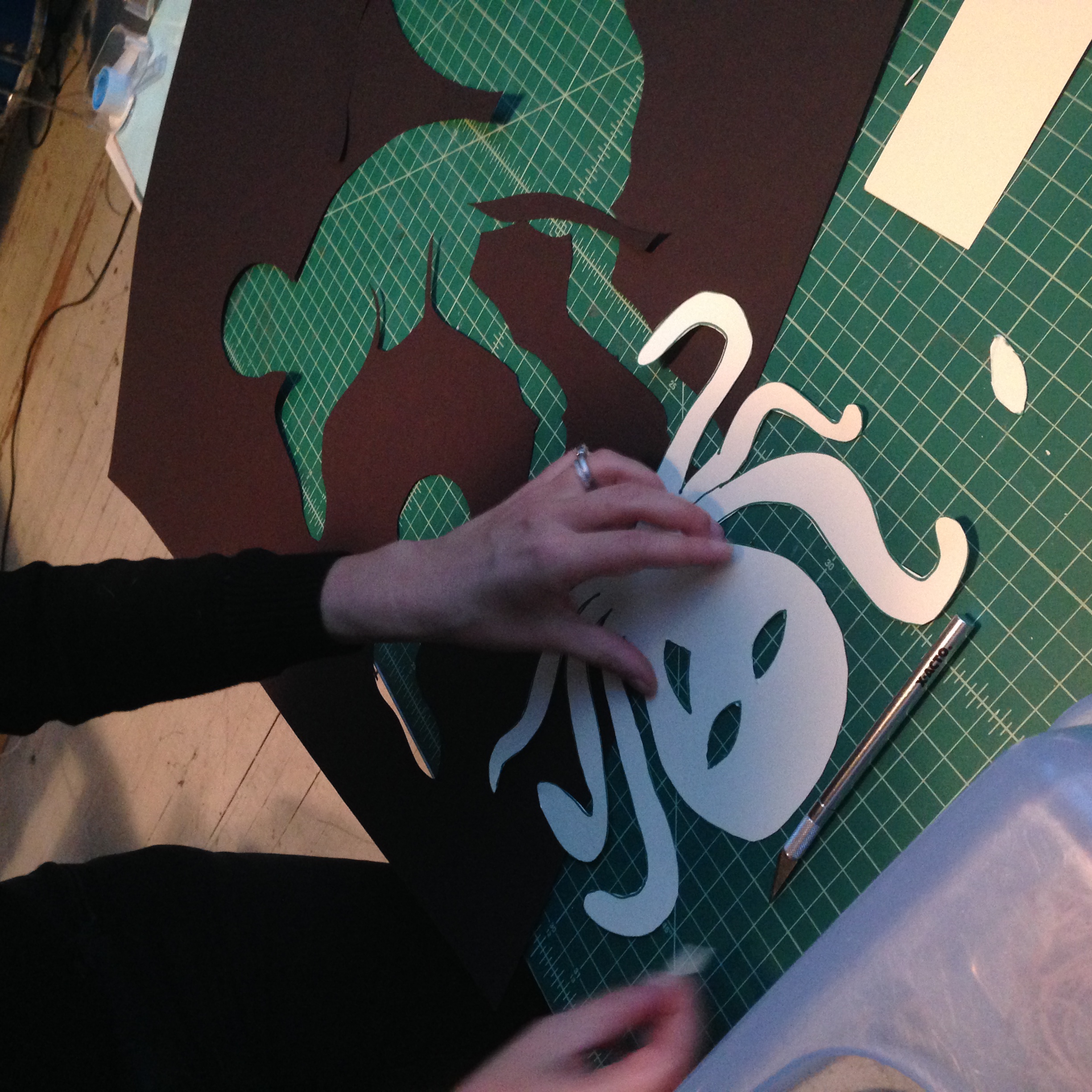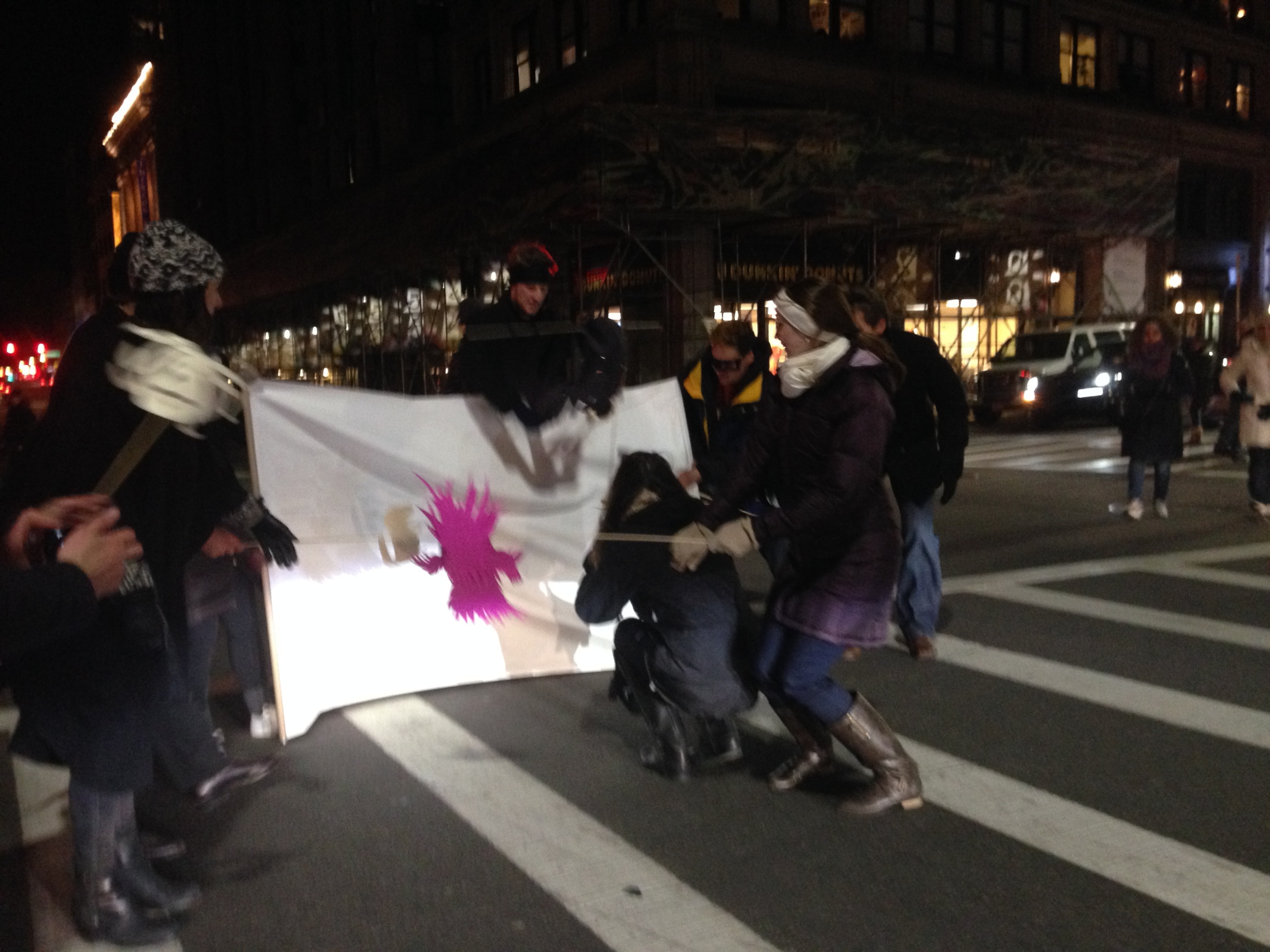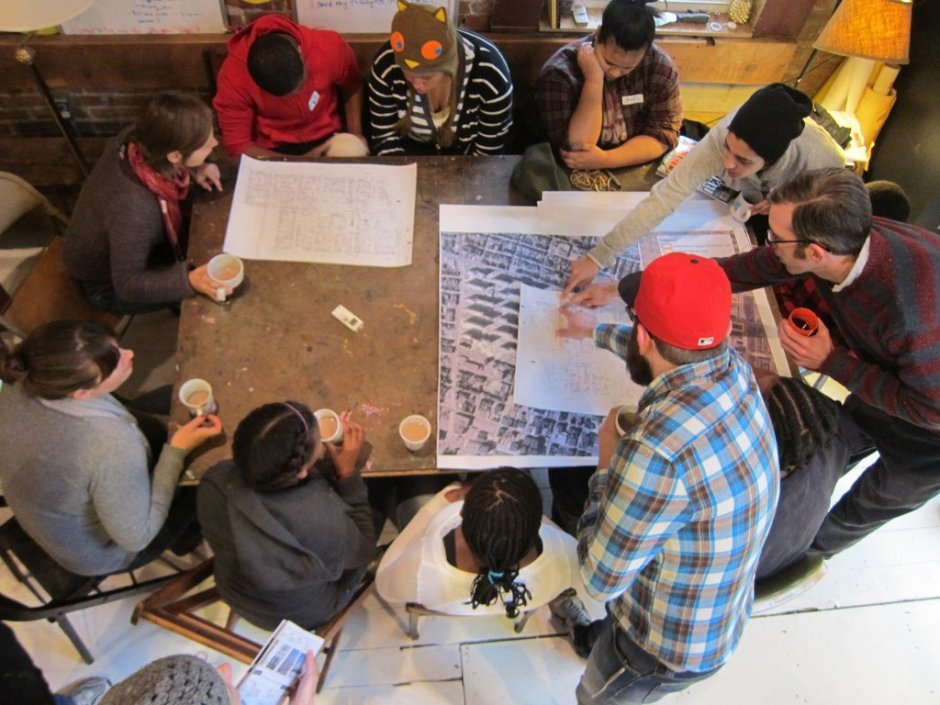




-
-
What We Are and What We Do
We are a lost city department, on a path of discovery and co-production of the city. Play is our compass. We build momentary and irresistible fictional worlds in public space, which bring a spirit of empathy and wonder to public life.
Department of Play is a Boston-based collective that creates temporary play zones in public spaces for people to step out of the everyday and play out imagined worlds. In play, participants envision alternative futures, share life experiences and knowledge, and collaboratively create artifacts. Our goal is to frame the city as a malleable, ongoing construction that any resident can experiment with and impact.
We stage play zones in “empty” spaces--like vacant lots, public transit, sidewalks, or plazas--particularly ones that residents imagine and perceive as “borders” that limit their movement through the city. We explore play as a common language conducive to sharing unconventional knowledge and new perspectives, as a medium for collective creativity, and as a tool to forge horizontal social relations.
With every play zone we stage, we learn something new. Through a hands-on approach, and in collaboration with multiple partners, we also think of play as a research framework to investigate the making of publics in contexts of rapid urban privatization.

Temporary Play Zones
Imagine the worlds that could exist in that space you pass every day
Temporary Play Zones
Imagine the worlds that could exist in that space you pass every day
Our temporary play zones (TPZs) bring people together to imagine and create collectively.TPZs invite passersby to engage in a creative mission in an unexpected public place located in what we term “border zones”-- those invisible frontiers that affect residents’ movement. In play, people explore their visions of the future and of other plausible worlds, while the border zones become momentarily shared places.
TPZs are designed to be collaborative, immersive, irresistible and aesthetically appealing to people of multiple ages, interests, and backgrounds. In and through them, players create alternative, fantastical worlds, where it becomes possible to step outside immediate realities, and momentarily explore different ways of being and relating to each other and the world. Currently, TPZs occur in the greater Boston area and are designed with multiple collaborators.
Story Ship
In order to imagine the city together, residents have to first see each other. In 2016, Department of Play worked with the Andrew Square Civic Association to create a film of interviews with residents from two sides of a fragmented area. Story Ship, an inflated cube for 360-degree projections, transformed the beach into a public space cinema. Afterwards, viewers were invited in pairs inside the cube, into a surreal environment for two.
Womxn in Design
In October, 2018, the Harvard Graduate School of Design-based Womxn in Design staged the Convergence. The event gathered hundreds of design students from across the US to begin re-imagining the intersection between identity and design. Department of Play's Block Party blocks provided the 'quilt' for collectively sharing and constructing ideas.
Public play date
Department of Play held its first public play date in Dec, 2013. Organized with ten collaborators, the daylong events began with "It's Summer Somewhere," a felt-flower-making workshop. The flowers were left throughout Boston's Chinatown neighborhood for residents to discover. Then, "Crosswalk Cinema" kicked off with shadow-puppet-making. Puppets became part of a momentary stage set at a busy intersection, where headlights from cars stopped at a red light served as stage lighting and crossing pedestrians' shadows mingled with the puppets'.
Portal of Tomorrow
Portal of Tomorrow emerged from a six-month collaboration in 2016 between Department of Play and teens from two youth centers in Fields Corner, Boston, BCYF Cleveland and Viet Aid. This daylong public space installation suggested a new kind of city welcoming to all. It was invented and created by the teens, who wanted to address detrimental stereotypes in the area.
MIT Winter Family Day
As MIT expands its campus, it is inviting neighbors to enjoy its newly created public spaces. Department of Play's blocks were part of MIT’s first Winter Family Day in March 2019. People of all ages built structures surrounded by slowly thawing snow. The non-traditional shapes invite otherworldly creations, but MIT players quickly discovered their underlying geometry.
block party
In Oct, 2014, Department of Play collaborated with the Mobile Museum of American Artifacts to enlist residents’ imagination in constructing prototypes for Mars during Block Party. Large, custom-made foam blocks invited Somervillians to consider key built elements for the first Martian dwellers. The blocks allow free interpretation through multiple points of connection. Residents, some so young they could barely walk and some old enough to have grandchildren, continually connected individual creations to form larger environments.
Snow Forts
The 2015 winter broke Boston records for snow – there was nothing left to do but play in it. Department of Play invited residents near Ramsay Park in Boston to come together in building snow forts. The artistic and previously less expensive area of Roxbury was feeling encroaching sprawl from the wealthier South End district; the park was a contested site on the border. Interestingly, while both sides joined in building, they did not engage one another.
Boston Creates
The City of Boston began its cultural plan, Boston Creates, in 2015. Department of Play added a touch of magic to the process of public engagement and invited three other artists to do the same. Two time-traveling curators traversed the city, hanging residents' framed ideas for particular locations, and giant foam B's allowed for building ideas at city festivals.
Boxtopia: Boston 2130
On June 7th, 2015, hundreds of cardboard boxes appeared on a vacant lot in Codman Square. Residents of Codman Square used the boxes to build their visions of what Boston will look like in 115 years. Residents didn’t realize that as their visions took shape, they had inadvertently built a time portal! The Minister Play from 2130 appeared on site, disoriented about the present where he had arrived to, and not sure that he could return to his future. To help him in his quest, on June 8th, the Minister of Play boarded the Fairmount commuter train and asked passengers to help him reconstruct his future.

Research
We did, we saw, we learned, we shared
Research
We did, we saw, we learned, we shared
Our temporary play zones are experimental research vessels. With every new world we create, we reflect, adjust, and produce new ones informed by participants’ input and the observation of participants’ experiences. We rely on ethnographic methods and sensibilities to assess our processes and evaluate whether play offers a legitimate alternative to traditional problem-solving approaches in urbanism, and if it can contribute to shaping new urban planning practices. We share both our empirical and theoretical learning about public play locally and internationally. Over time, our goal is to support relevant research conducted by academics and students from high school through the post-graduate level. To date, we have published an academic paper, "Imagine! You have Nothing to Lose: Collaboration and Play in Urban Development" in the journal Critical Sociology in May, 2014. The paper examines a weekend-long workshop conducted with the collective Social Agency Lab and the Rebuild Foundation in St. Louis.
We explore the potential of play in forging a common vocabulary among diverse actors, which, we argue, facilitates the pursuit of pluralistic visioning. The work was also presented at the 2014 Digital Media and Learning Conference in Boston.
Research topics include:
• Play in urbanism/urban planning
• Impacts of placemaking
• “Social practice” as art practice
• Transition from participation to collaboration in urban planning
• The role of imagination and creativity in urban development
• The Creative Economy framework
• Play as an ethnographic method
• Publics, public space and urban privatization
• Art and epistemology

Players
Players
KATARZYNA BALUG
Co-founder
Inspired by science-fictional worlds and informed by urbanism studies, Katarzyna (Kate) Balug’s practice flows from performance and installation art to research and curation. Her work has been shown at Muzeum Sztuki Lodz, Poland, Isles Art Initiative, Boston, and FARO Tláhuac in Mexico City, among others. In 2017, she co-curated the exhibit “The New Inflatable Moment” at the BSA Space in Boston. Kate is writing a dissertation on inflatable structures and the post-lunar imaginary at the Harvard Graduate School of Design.
MARIA VIDARt-delgado
Co-founder
Maria received her PhD in Anthropology from Rice University in 2013. Maria studies political participation, public formation and public space after neoliberalism. She’s currently finishing her first book which examines the rise of professional political management in Colombia, and social inequality in electoral campaigning. She wonders what would happen if we planned cities around people and not profit.
YOU, and you too!
Player
Department of Play has been collaborative from its inception. If you're in the Boston area and have ideas for TPZs, contact us: hello [at] deptofplay [dot] com. TPZs are designed to inspire collaboration and to be immersive, irresistible and aesthetically appealing. We are always learning what that means in practice, and we'd love to hear from you! If your idea aligns with DoP's vision, we'll work together to make it happen.
Players' Circle
Our growing network of collaborators includes our dear husbands Nickolas Peter Chelyapov and Rex Baker IV, and close friends: Gerard Patawaran, Gabrielle Patawaran, Julie Goldstein, Jessica Goldfin, David Robert, Victor van den Bergh, Zachary Piazza, James Rojas and MIT's Center for Civic Media, where DoP was initially housed.
We have been gratefully supported by ArtPlace America; the Expressing Boston Fellowship, a partnership between the Design Studio for Social Intervention (DS4SI) and The Boston Foundation; and the National Arts Strategies Creative Community Fellows.
Our community partners include Dudley Street Neighborhood Initiative, DS4SI, Viet Aid, BCYF Cleveland, and the Andrew Square Civic Association.

